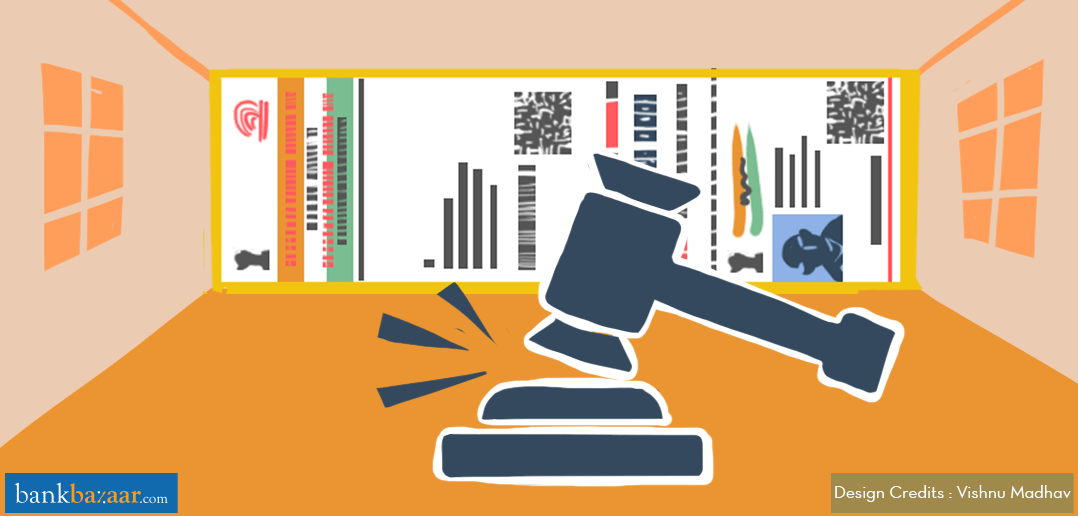The Supreme Court has made a decision on Aadhaar and its validity. While some provisions in the Aadhaar were struck down, some were upheld. Here’s what you need to know.

The Supreme Court (SC), which is the highest ruling authority in our country, announced its decision on the Aadhaar Card and its validity yesterday on September 26th, 2018. The apex court’s five-judge constitution bench upheld certain provisions in the Aadhaar Act, while striking down others. Here’s a quick summary of what remains mandatory and what doesn’t with regard to Aadhaar.
Let’s take a look at some of the highlights of this ruling.
- The SC upheld the validity of Aadhaar stating that there are enough security measures that are taken to protect the data of all citizens. But, it is tough to launch surveillance on the citizens through Aadhaar and, for that sake, the Government has been asked to provide more security measures as well as reduce the period of storage of data in the system.
- The Centre has been asked to bring in a robust law for data protection on high priority.
- The SC said that Aadhaar cannot be made mandatory for opening a bank account or for getting a mobile connection.
- The SC also said that Aadhaar cannot be made compulsory for school admission.
- However, linking of Aadhaar to your PAN card will remain mandatory for filing of Income Tax Returns (ITR).
- The SC directed the Government to take measures to ensure that illegal migrants are not issued Aadhaar to avail benefits from the various social welfare schemes.
- Justice Sikri said that there is a fundamental difference between Aadhaar Card and identity. Once the biometric information is stored, it remains in the system and it cannot be duplicated.
- The apex court struck down the provision in Aadhaar law allowing sharing of data on the grounds of national security.
To summarise the ruling here is a list of things that are valid and invalid post the ruling:
Services that still need Aadhaar Linking
- Aadhaar linking to PAN is mandatory
- Aadhaar is compulsory to file Income Tax Returns
- Aadhaar is required to avail benefits from welfare schemes and government-aided subsidies
Services that won’t need Aadhaar Linking
- Aadhaar is not mandatory for school admissions
- CBSE, NEET and UGC cannot make Aadhaar mandatory
- No child can be denied benefits of any scheme on not being able to provide their Aadhaar Card
- It is not mandatory to link bank accounts with Aadhaar
- Telecom service providers cannot ask for Aadhaar to link it with customers mobile numbers
Aadhaar Verdict: Positives For Common Man, Clarity Needed For Bank Customers
Reactions From Adhil Shetty, CEO, BankBazaar.com
“It is a huge win that the Supreme Court has upheld the constitutional validity of Aadhaar while striking down and reading certain sections of the Aadhaar Act 2016. In the 1448-page judgement, the judges have kept in mind the empowerment of the public at large and focused on plugging the loopholes. This is very heartening position, and has several positives for the common man.”
What Has Changed
“It is no longer mandatory to provide your Aadhaar while opening a bank account. Similarly, it is not required to link your telephone numbers with your Aadhaar number. You cannot be denied services for not having Aadhaar, nor can it be demanded by educational institutions for admissions, examinations, or any subsidies for children.”
Empowerment Via eKYC
“There are still clarifications needed to figure out the exact impact of the judgement on the existing eKYC processes for opening a bank account. Aadhaar would continue to be recognized as an identity and address proof and with the amendment of the PMLA again it would be recognized as an ‘Officially Valid Document’. OTP-based eKYC had helped an increasing number of people access financial products over their mobile phones, increasing the penetration and reach of such products and raising levels of financial inclusion.”
Business Impact
“The consent-based architecture is in place and voluntarily submission of Aadhaar by customers would continue. The judgement has struck down Section 57. We are now studying what will change when it comes to authenticating customers during opening an account based relationship with the bank.
At BankBazaar.com, the majority of digital customers opted for eKYC through Aadhaar-based OTP since it was both convenient and quicker than paper-based authentications. It remains to be seen as to how the RBI restructures the CDD (customer due-diligence) procedure in the wake of this judgment.
We have seen 60% of our customers this year willing to submit and authenticate their documents online. Whether this percentage will see further scale up will be seen post closer examination of the judgment and its corresponding clarifications from the authorities including RBI.”
While the Aadhaar Card is a handy document to have, you know what card can give you financial freedom? The much-loved Credit Card. Don’t believe us? See for yourself.